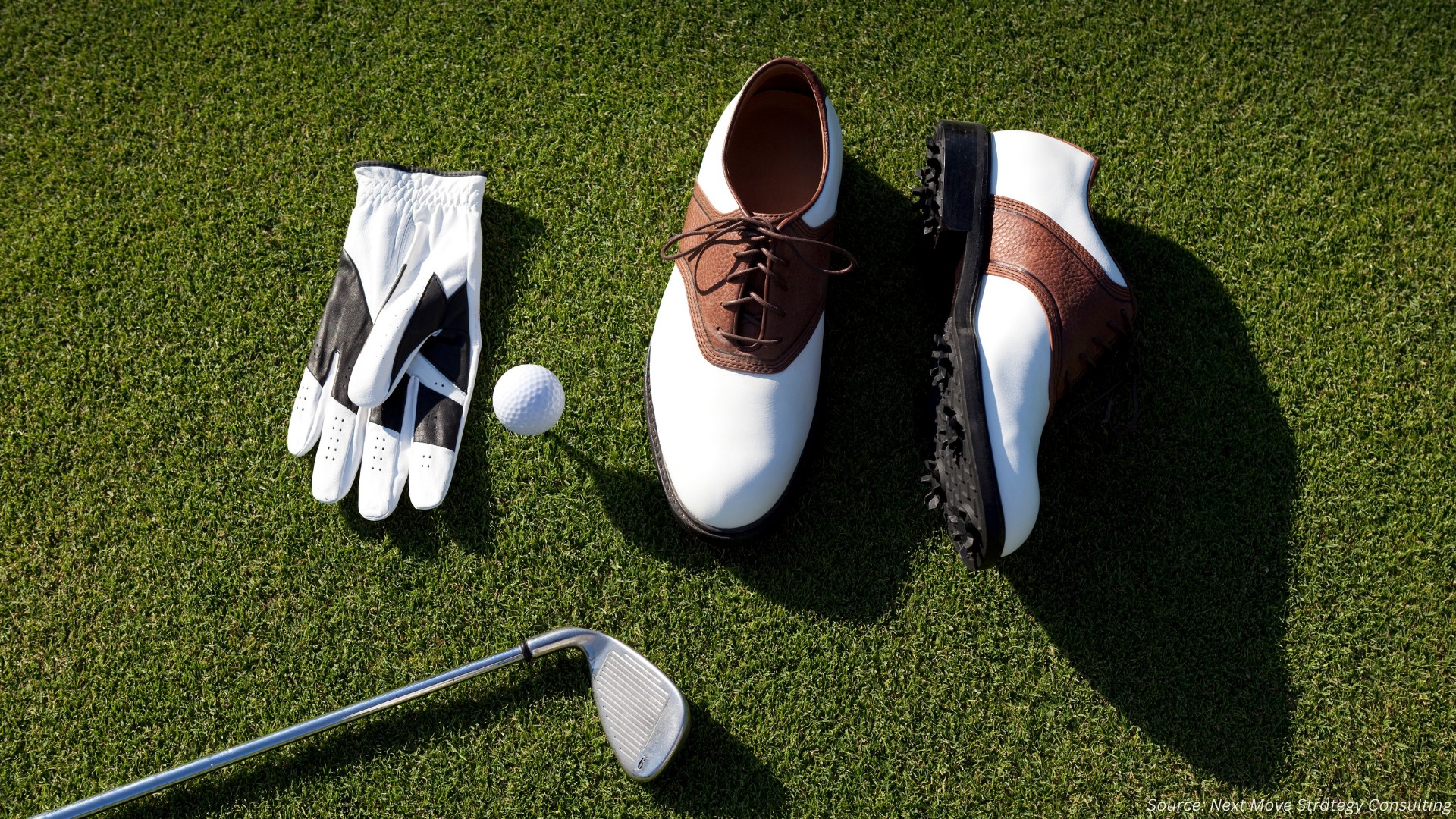
Smart Shoes Market by Shoe Type (Walking Shoes, Running Shoe, and Sports Shoe), by Product Type (Athletic, and Non-Athletic), by Functionality (Step Counting, Navigation, Positioning, and Auto Tightening), by End Use (Male, and Female)- Global Opportunity Analysis and Industry Forecast, 2022 – 2030
Market Definition:
The Smart Shoes Market size was valued at USD 161.0 million in 2021 and is predicted to reach USD 320.7 million by 2030 with a CAGR of 7.6% from 2022 to 2030.
Smart shoes are digitally connected footwears bundled with unique features such as traction control and easy landing that makes them more useful than a normal shoe. It comes with insoles having different kinds of sensors such as accelerometer and gyroscope that are used to track various activities including speed and location. Moreover, these shoes consist of other components such as light sensors, GPS, razor-thin sensors, and transmitters to supply data to each foot individually, along with adaptive and self-lacing technology.
Market Dynamics and Trends
The demand of smart shoes is rising due to increased use of these shoes in fitness and sports activities. For instance, in September 2021, Nike had launched Oklahoma Sooners themed smart shoes featuring light weight and better body balancing capability. Also, development of smart shoes for elderly people, along with increase in research and development activities in this space such as integration of warning-based sensor technology that can detect obstruction and provide speed control are expected to increase the demand of smart shoes during the forecast period.
However, lack of awareness in developing economies, low affordability, and lack of technological maturity are factors that restraint the growth of the market to some extent. On the other hand, emergence of AI (Artificial Intelligence) enabled shoes is expected to create numerous opportunities for the market players. For instance, in May 2020 Nike unveils new augmented reality technology to improve shoe sizing. This new AR solution called Nike Fit can use computer vision, data science, machine learning, artificial intelligence and recommendation algorithms to measure the full shape of both feet.
Market Segmentations and Scope of the Study:
The global smart shoes market share is analyzed based on product type, end-user, functionality, distribution channel and geography. Based on product type, the market is segmented into athletic and non-athletic. Based on end user, the market is fragmented into children (12-17 years), young (18-32 years), disabled, adults (33-50 years) and old people (above 50 years). The children market is again sub-divided into male and female. The young market is again sub-classified into male and female. The disabled market is sub-categorised into male and female. The adult market is sub bifurcated into male and female. The old age market is again sub-divided into male and female. Based on functionality, the market is classified into step counting, navigation, positioning, and auto tightening. Based on distribution channel, the market is divided into supermarket, hypermarket, specialty store, and online store. Geographic breakdown and analysis of each of the aforesaid segments includes regions comprising North America, Europe, Asia-Pacific, and RoW.
Geographical Analysis
North America holds the lion share of smart shoes market and is expected to continue dominating the market during the forecast period. This is attributed to factors such as increasing product availability of popular brands such as TRAQshoe, Salted Venture, and Shiftwear in this region. Furthermore, the region leads the global market in terms of product demand as people of this region disburse immensely on fitness and body recovery products. Also, the demand of these shoes is increasing owing to the high consumer inclination towards fashion.
However, Asia-Pacific region is expected to show a steady rise in the smart shoes market due to the rapid adoption of smart shoes in its fitness and medical industry. Moreover, rising focus on the development of high-end products, increase in health concerns, growing need for constant monitoring of activities, and consumer electronic wearables are expected to drive the smart shoes market growth in this region.
Competitive Landscape
The smart shoe market is comprised of various market players such as Impakto Shoes, Adidas AG, Puma SE, NIKE Inc, Skechers USA, Inc, Under Armour, Inc, ASICS Corporation, Digitsole, Salted Venture, Altra Running, Li-Ning Company Limited, Xiaomi Corporation, StepWhere, Pepper Gate Footwear Inc., Vivobarefoot. These market players are continuously launching new products and planning expansion of their businesses across various regions to maintain dominance in the smart shoe market.
For instance, in December 2020, Plantiga Technologies joined hands with Original Footwear to build AI powered smart shoes with high resistance and better body- weight ratio that can be used for military expeditions. Also, in August 2021, Xiaomi Corporation Limited had launched new range of smart running shoes with advanced features such as Microban Technology and PU heal stabilizer.
Key Benefits
-
The smart shoes market report provides the quantitative analysis of the current market and estimations through 2022-2030 that assists in identifying the prevailing market opportunities to capitalize on.
-
The study comprises a deep dive analysis of the smart shoes market trend including the current and future trends for depicting the prevalent investment pockets in the market.
-
The information related to key drivers, restraints and opportunities and their impact on the smart shoes market is provided in the report.
-
The competitive analysis of the market players along with their market share in the global smart shoes market.
-
The SWOT analysis and Porters Five Forces model is elaborated in the study.
-
Value chain analysis in the market study provides a clear picture of the stakeholders’ roles.
Key Market Segments:
By Shoe Type
-
Walking Shoe
-
Running Shoe
-
Sports Shoe
By Product Type
-
Athletic
-
Non-Athletic
By Functionality
-
Step Counting
-
Navigation
-
Positioning
-
Auto Tightening
By End Use
-
Male
-
Children (12-17 Years)
-
Young (18-32 Years)
-
Disabled Individuals
-
Adults (33-50 Years)
-
Old People (Above 50 Years)
-
-
Female
-
Children (12-17 Years)
-
Young (18-32 Years)
-
Disabled Individuals
-
Adults (33-50 Years)
-
Old People (Above 50 Years)
-
By Distribution Channel
-
Supermarket
-
Hypermarket
-
Specialty Store
-
Online Store
By Geography
-
North America
-
The U.S.
-
Canada
-
Mexico
-
-
Europe
-
The UK
-
Germany
-
France
-
Italy
-
Spain
-
Denmark
-
Netherlands
-
Finland
-
Sweden
-
Norway
-
Russia
-
Rest of Europe
-
-
Asia-Pacific
-
China
-
Japan
-
India
-
South Korea
-
Australia
-
Indonesia
-
Singapore
-
Taiwan
-
Thailand
-
Rest of Asia-Pacific
-
-
RoW
-
Latin America
-
Middle East
-
Africa
-
Key Players
-
Impakto Shoes
-
Adidas AG
-
Puma SE
-
NIKE Inc
-
Skechers USA, Inc
-
Under Armour, Inc
-
ASICS Corporation
-
Digitsole
-
Salted Venture
-
Altra Running
-
Li-Ning Company Limited
-
Xiaomi Corporation
-
StepWhere
-
Pepper Gate Footwear Inc.
-
Vivobarefoot
REPORT SCOPE AND SEGMENTATION:
|
Parameters |
Details |
|
Analysis Period |
2021–2030 |
|
Base Year Considered |
2021 |
|
Forecast Period |
2022–2030 |
|
Market Size Estimation |
Million (USD) |
|
Market Segmentation |
by Shoe Type (Walking Shoes, Running Shoe, and Sports Shoe), by Product Type (Athletic, and Non-Athletic), by Functionality (Step Counting, Navigation, Positioning, and Auto Tightening), by End Use (Male, and Female) |
|
Geographical Segmentation |
Europe (The UK, Germany, France, Italy, Spain, Denmark, Netherlands, Finland, Sweden, Norway, Russia, Rest of Europe), Asia-Pacific (China, Japan, India, South Korea, Australia, Indonesia, Singapore, Taiwan, Thailand, Rest of Asia-Pacific), RoW (Latin America, Middle East, Africa) |
|
Companies Profiled |
Impakto Shoes, Adidas AG, Puma SE, NIKE Inc, Skechers USA, Inc, Under Armour, Inc, ASICS Corporation, Digitsole, Salted Venture, Altra Running, Li-Ning Company Limited, Xiaomi Corporation, StepWhere, Pepper Gate Footwear Inc., Vivobarefoot. |




















 Speak to Our Analyst
Speak to Our Analyst

























